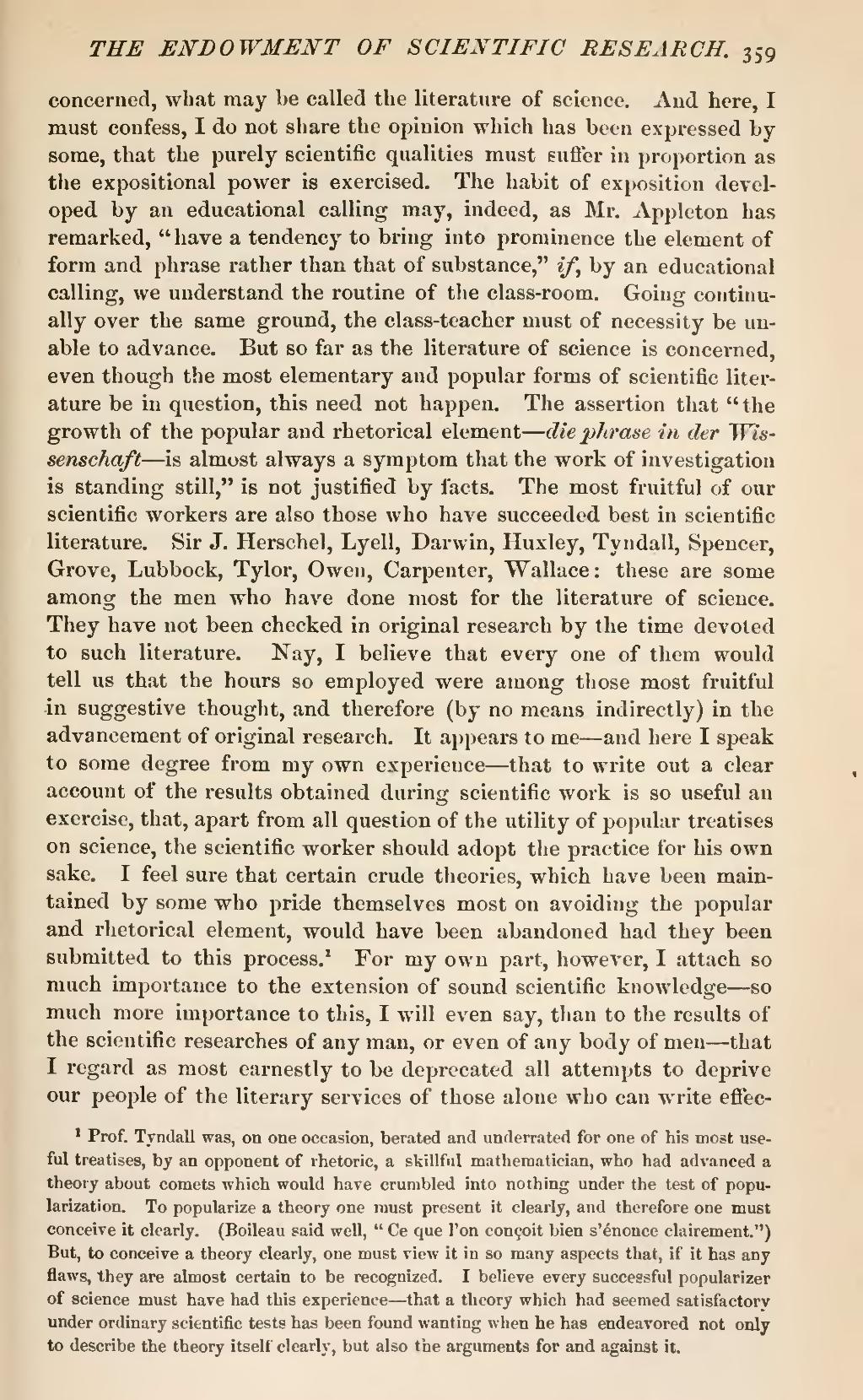concerned, what may be called the literature of science. And here, I must confess, I do not share the opinion which has been expressed by some, that the purely scientific qualities must suffer in proportion as the expositional power is exercised. The habit of exposition developed by an educational calling may, indeed, as Mr. Appleton has remarked, "have a tendency to bring into prominence the element of form and phrase rather than that of substance," if, by an educational calling, we understand the routine of the class-room. Going continually over the same ground, the class-teacher must of necessity be unable to advance. But so far as the literature of science is concerned, even though the most elementary and popular forms of scientific literature be in question, this need not happen. The assertion that "the growth of the popular and rhetorical element—die phrase in der Wissenschaft—is almost always a symptom that the work of investigation is standing still," is not justified by facts. The most fruitful of our scientific workers are also those who have succeeded best in scientific literature. Sir J. Herschel, Lyell, Darwin, Huxley, Tyndall, Spencer, Grove, Lubbock, Tylor, Owen, Carpenter, Wallace: these are some among the men who have done most for the literature of science. They have not been checked in original research by the time devoted to such literature. Nay, I believe that every one of them would tell us that the hours so employed were among those most fruitful in suggestive thought, and therefore (by no means indirectly) in the advancement of original research. It appears to me—and here I speak to some degree from my own experience—that to write out a clear account of the results obtained during scientific work is so useful an exercise, that, apart from all question of the utility of popular treatises on science, the scientific worker should adopt the practice for his own sake. I feel sure that certain crude theories, which have been maintained by some who pride themselves most on avoiding the popular and rhetorical element, would have been abandoned had they been submitted to this process.[1] For my own part, however, I attach so much importance to the extension of sound scientific knowledge—so much more importance to this, I will even say, than to the results of the scientific researches of any man, or even of any body of men—that I regard as most earnestly to be deprecated all attempts to deprive our people of the literary services of those alone who can write effec-
- ↑ Prof, Tyndall was, on one occasion, berated and underrated for one of his most useful treatises, by an opponent of rhetoric, a skillful mathematician, who had advanced a theory about comets which would have crumbled into nothing under the test of popularization. To popularize a theory one must present it clearly, and therefore one must conceive it clearly. (Boileau said well, "Ce que l'on conçoit bien s'énonce clairement.") But, to conceive a theory clearly, one must view it in so many aspects that, if it has any flaws, they are almost certain to be recognized. I believe every successful popularizer of science must have had this experience—that a theory which had seemed satisfactory under ordinary scientific tests has been found wanting when he has endeavored not only to describe the theory itself clearly, but also the arguments for and against it.

